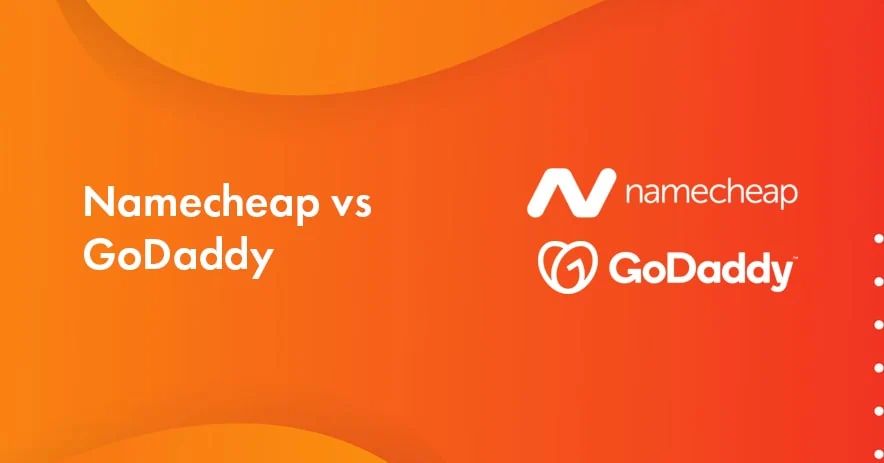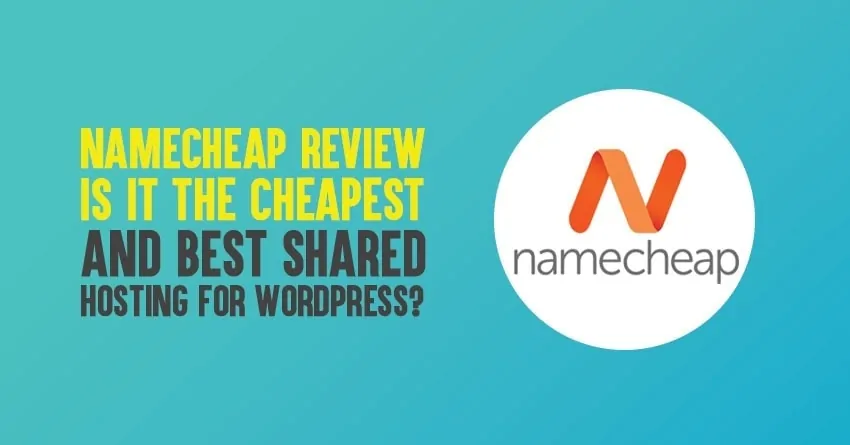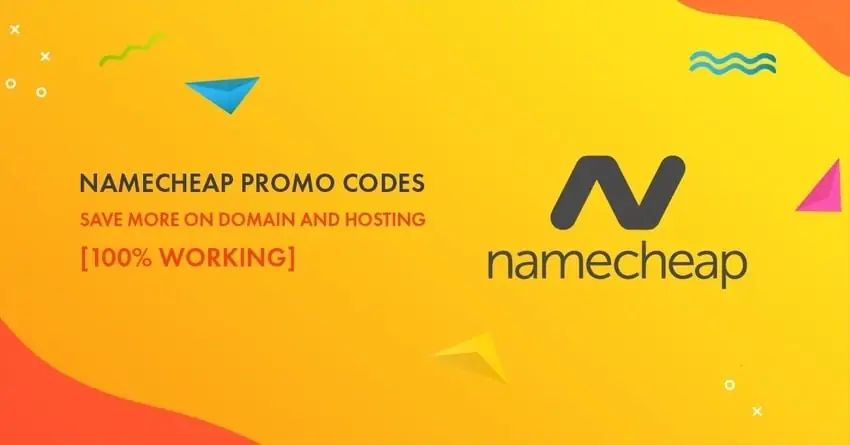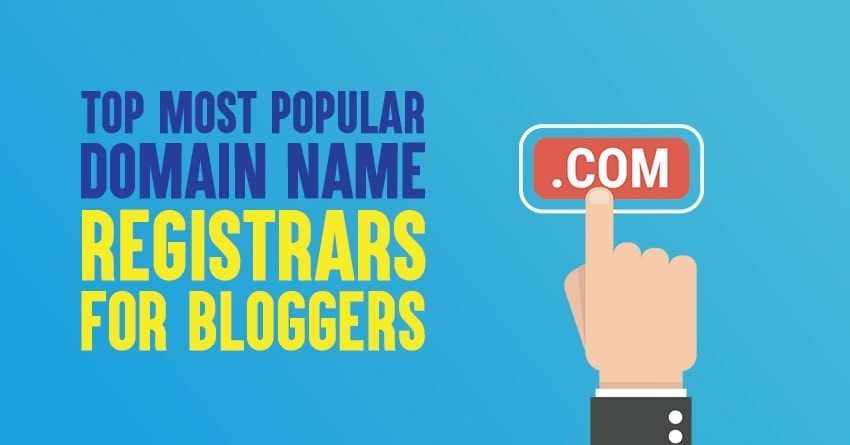Are you looking for the RIGHT domain registrar to buy your domain among Namecheap vs GoDaddy? Want to know which is the best registrar among GoDaddy and Namecheap? You’re in the right place.
In this honest comparison, you’ll find out all the pros, cons, pricing, etc of both these popular domain registrars.
Buying a domain is the first step in launching a professional website. When it comes to picking a great domain name, there are way too many options out there.
Few of them give you cheap prices, and most of the other sites charge hefty prices. Here’s where two of the domain name registrars are preferred by most people Namecheap and GoDaddy.

Table of Contents
The Comparison Summary [Namecheap Hosting vs GoDaddy Hosting]
Namecheap and GoDaddy are two of the biggest names in the web hosting industry. They both offer domain registration, shared hosting, and other services.
Why Choose Namecheap?
Namecheap is good if you’re looking for a low-cost and high-value hosting solution that includes important features like free SSL, backups, email accounts, and a CDN from the very beginning.
It’s a better fit for everyday users who want reliable hosting without the upsell traps.
In our tests, Namecheap delivered faster load times and handled traffic spikes better than GoDaddy. Its UI is practical and cPanel is just one click away. Customer support is quick and useful during off-hours.
However, keep in mind a couple of Namecheap limitations:
- It uses standard SSDs instead of faster NVMe drives.
- Some advanced security options like malware scanning require manual setup or third-party tools.
Why Choose GoDaddy?
GoDaddy can be considered if you prioritize uptime stability, global data center presence, and the availability of phone support. It comes with NVMe storage, a sleek interface, and integrated tools like Pay Links and Airo for SEO and branding. For users who prefer calling over chatting or need local phone support GoDaddy has an advantage.
Be aware of GoDaddy drawbacks:
- Higher renewal pricing and frequent upsells for essentials like backups or SSL.
- Chat support is inconsistent.
| Namecheap Pros | Namcheap Cons |
| Lower starting and renewal prices. Monthly billing at fair rates | SSD storage only (not NVMe) |
| Free SSL on all plans, free backups, email accounts, CDN, website builder | Some security tools need third-party |
| Faster load times under traffic stress | Malware scans require add-ons |
| Quick cPanel access, intuitive layout, AI writing assistant | No phone support |
| Free SSL, WHOIS privacy, spam/fraud protection out of the box | |
| Fast live chat, email and ticket system support |
| GoDaddy Pros | GoDaddy Cons |
| Offers NVMe storage on shared hosting plans | High renewal rates, hidden add-on costs |
| Built-in Pay Links, marketing tools, global data centers | Many basics like SSL/backups are paid extras |
| Daily backups (on higher-tier plans) | Live chat unreliable, long wait times |
| 24/7 phone support in 30+ countries | Lots of mixed reviews about their security |
Namecheap vs GoDaddy: Comparing Main Modules Side By Side
Hosting Features Comparison:
Winner: Namecheap
After using both GoDaddy and Namecheap, I would say that Namecheap takes the win in this round.
Namecheap doesn’t just offer more features. It includes them where it matters most. From providing unlimited email accounts and SSL on all plans to regular backups and free migration, you’re not constantly pushed toward upsells. The value is straightforward and beginner-friendly.
GoDaddy isn’t bad. Especially if speed and NVMe storage are top priorities. However, unless you’re running a high-performance or eCommerce-heavy site, many of its advantages might not justify the higher price and extra costs for basics like backups and SSL.
| Features | Namecheap | GoDaddy |
| Storage | 20 GB to Unlimited (SSD) | 10 GB to 75 GB |
| Money Back Guarantee | 30 Days | 30 Days |
| Free Domain | Yes (Applicable on Selected Domains TLDs) | Yes (with annual plans) |
| Automatic Backups | Yes, at least twice a week | Only with WordPress plans or paid add-on |
| SSL Certificate | Free SSL on all plans | Free only for 1 year on Economy plan |
| Bandwidth | Unmetered | Unmetered |
| Site Migration | Free | Paid or DIY |
| Email Accounts | 30-Unlimited | One Microsoft 365 mailbox (1 year) |
| Website Builder & AI Tools | Yes | Basic |
| CDN | Included | Not included by default |
| Support | 24/7 live chat | 24/7 phone support |
When it comes to similarities, both hosts include unmetered bandwidth, a free domain for the first year, cPanel access, and 30-day money-back guarantees.
What Namecheap Does Better:
- Free SSL on all plans: GoDaddy entry plan only gives you SSL for one year. But Namecheap includes up to 50 SSLs even on its cheapest plan.
- Email Hosting: Namecheap gives you 30 to unlimited email accounts, while GoDaddy includes just one Microsoft 365 mailbox for a year.
- Automatic Backups: Namecheap offers at least two automated backups per week, while GoDaddy only provides backups if you’re on a WordPress plan or pay extra.
- Free CDN and AI site builder: These come bundled in Namecheap’s standard plans (useful bonuses that GoDaddy lacks).
What GoDaddy Does Better:
- NVMe Storage: If performance is a top priority, GoDaddy wins with faster NVMe SSDs, compared to Namecheap’s standard SSDs.
- Global Data Centers: This helps improve site load times globally.
- Built-in Payment Tools: GoDaddy allows you to add Pay Links. This will be handy if you’re selling directly via your domain.
I guess GoDaddy is designed to impress with sleek interfaces and performance-centric features. But it starts to feel more like a menu where essentials cost extra. Meanwhile, Namecheap feels like a budget-friendly bundle to me because it includes everything you need without extra charges.
GoDaddy vs Namecheap: Performance Tests
Winner: Namecheap
We always update our list of the fastest web hosting. But for now, let’s talk about Namecheap and GoDaddy performance.
To ensure we’re not just repeating their advertising claims, I signed up for shared hosting plans on both Namecheap and GoDaddy and set up similar WordPress websites on each.
Over several weeks, I ran various speed tests, uptime tests, and stress tests in a real-life scenario.
Similarities:
- Uptime Guarantees: Both hosts advertise a 99.9% uptime SLA (even though Namecheap’s homepage implies 100%, the SLA still says 99.9%).
- Monitoring Tools Compatibility: Both worked well with standard monitoring tools, and tracking was consistent and smooth across both providers.
1. Website Speed Tests (WebPageTest & GTmetrix):
✅ Winner in Speed: Namecheap.
🚫 GoDaddy fell behind in all speed-related metrics.
| Metrics | Namecheap | GoDaddy |
| TTFB (WebPageTest) | 0.373s | 0.689s |
| LCP (WebPageTest) | 1.254s | 1.446s |
| Speed Index | 0.879s | 1.141s |
| TTFB (GTMetrix) | 181ms | 262ms |
| LCP (GTMetrix) | 685ms | 975ms |
| Full Load Time (GTMetrix) | 0.686s | 1.3s |
Namecheap was clearly ahead in terms of raw speed. From time to first byte (TTFB) to largest contentful paint (LCP) and Speed Index, Namecheap performed faster across the board.
2. Stress Test Results:
We sent 50 virtual users over a 5-minute period to simulate a traffic spike. Namecheap passed with zero HTTP failures and maintained a quick 188ms response time at the 95th percentile. On the other hand, GoDaddy couldn’t handle the full load and only passed the test after scaling it down to just 20 users. Even then, it struggled, posting a 1606ms P95 response time.
✅ Winner in Load Handling: Namecheap
🚫 GoDaddy showed signs of instability under even moderate user loads.
3. Uptime (Last 3 Months Average):
- Namecheap: 99.98%, 99.97%, 100.00%
- GoDaddy: 100.00%, 100.00%, 100.00%
I see GoDaddy had a more flawless record in our three-month test window. However, Namecheap’s performance was still within acceptable SLA levels.
✅ Winner in Uptime Reliability: GoDaddy
📉 Namecheap was close but dipped slightly below 99.9% in one of the months.
Performance Comparison Summary Table:
| Performance Metrics | Namecheap | GoDaddy |
| Page Load Speed | Faster loading times | Slower loading times |
| Stress Test | Stable, 42 RPS, 188ms P95 | Unstable, failed above 20 VUs |
| Uptime (Avg 3 months) | 99.98%–100% | 100% consistently |
| TTFB | 181ms | 262ms |
| LCP | 685ms | 975ms |
Opinion & Verdict:
I have agreed that both providers bring something to the table. But my tests show that Namecheap comes out ahead overall.
Its speed, responsiveness under load, and real-world performance during site traffic spikes are simply superior.
Yes, I must say that GoDaddy is rock-solid in terms of uptime, and that’s important. But it falters in areas that affect the actual user experience on your website.
If you’re running a personal blog or a static site with very little traffic, GoDaddy might serve you just fine.
But if you want a fast-loading, scalable, and responsive site without overpaying, Namecheap is the smarter bet.
User Interface Compared:
Winner: Tie
I guess the overall user interface of both GoDaddy and Namecheap looks almost the same. (You’ll only encounter some minor differences.)
Let me show you how the hosting environment of both hosting services looks:
Namecheap leans toward a more colorful and slightly busier interface. But I am used to it after a couple of navigation attempts. The sidebar layout makes it easy to jump between domain management, hosting, and security settings.
I particularly liked how quickly I could access cPanel and manage domains with toggles for auto-renewal, DNS, and privacy settings.
Namecheap dashboard puts everything within a click or two. Here management feels intuitive, and connecting your domain to hosting or managing SSLs is seamless.
Also, Accessing cPanel is fast from the “Hosting List” section. Namecheap also throws in some added goodies like Softaculous app installer, Jellyfish Spam Protection, and a decent AI website builder.
Plus, the AI writing assistant is surprisingly helpful for creating site content quickly.
What I really appreciated was the clear guidance during setup. As a new user, I felt I was gently walked through the basics without being overloaded.

GoDaddy presents a much more minimalistic and clean design. There’s a lot of white space, which helps reduce distraction, and it includes a helpful “Action Center” that alerts you to key setup steps.
The dashboard sounds more modern, I did notice that beginners might have a slightly steeper learning curve figuring out where everything lives (particularly when jumping between domain settings and hosting options).

GoDaddy’s dashboard is polished and easier on the eyes. The interface is stripped down and some users might appreciate the cleaner layout.
You’ll find key functions under the “Account Actions” dropdown and get helpful notifications through the Action Center.
While it’s functional, it felt like I needed extra clicks to reach important areas like domain privacy settings or full cPanel features.
GoDaddy’s website builder impressed me with its AI assistant, Airo, which helps with SEO, branding, and content generation. But it felt more locked-down in terms of design flexibility when compared to Namecheap’s editor.
| User Experience | Namecheap | GoDaddy |
| Dashboard Design | Colorful, sidebar navigation | Clean, minimalist layout |
| Ease of Setup | Simple with guided steps | A bit more manual for beginners |
| cPanel Access | 1-click from Hosting List | Available but takes extra clicks |
| App Installer | Softaculous | Installatron |
| Website Builder | 200+ templates + AI assistant | AI site builder with “Airo” |
Personally, I feel it is a tie between both GoDaddy and Namecheap in terms of User experience.
If you like a more modern-looking dashboard with fewer distractions, GoDaddy might be more your style. However, if you value quick access to controls, flexibility, and a bit more depth in features, Namecheap is the winner.
Words on Security:
Winner: Namecheap
I’ve personally managed domains and hosting accounts on both Namecheap and GoDaddy.
With Namecheap, I liked how many core security features were bundled right into the base plans.
You get free SSL, domain privacy, and basic spam and fraud protection right out of the gate. However, some elements like malware scanning or server-level antivirus tools are either missing or must be added through third-party tools or plugins.
GoDaddy does a good job of presenting itself as secure, but a lot of its advanced security options come at a premium.
You’ll need to pay for features like malware scans, advanced firewalls, or site security monitoring unless you opt for higher-tier plans. The daily automated backups are included in all hosting plans which I found very useful.
However, a notable red flag was GoDaddy’s DNS hack incident earlier this year. It was patched quickly, but it raised some trust concerns, especially for users managing multiple or business-critical domains.
Overall, if you’re on a budget and want solid baseline security out of the box, Namecheap delivers more essentials without upselling you. GoDaddy provides deeper security layers, but only if you’re willing to pay for them.
Customer Support: GoDaddy vs Namecheap
Winner: Namecheap
I’ve tested support interactions with both Namecheap and GoDaddy multiple times over the past couple of days. With Namecheap, I almost always got connected to a human within a minute or two via live chat even at odd hours. The agents were knowledgeable, friendly, and most importantly they didn’t waste my time with canned replies. They’d often resolve the issue and link me to a detailed article for future reference.

GoDaddy phone support is a big plus. You can actually talk to a person. However, the chat system is hit-or-miss. On paper, it’s available 24/7, but in reality, I frequently encountered wait times over 30 minutes, and sometimes it wasn’t available at all when I tried during standard business hours.

| Support Feature | Namecheap | GoDaddy |
| 24/7 Live Chat | Yes | Yes |
| Phone Support | Not Available | Yes, 24/7 in 30+ countries |
| Email Support | Yes | No |
| Ticketing System | Yes | No |
| Knowledge Base | Yes | Yes |
| How-to Videos | Yes | Yes |
| Response Time | 1 minute (avg) | Often 20-30 Minutes |
Verdict: Who Wins on Support?
This is close but it depends on your preferred communication style.
If you prefer real-time global support over chat or email, Namecheap clearly takes the lead. The support is responsive and gets right to the point without unnecessary delays. The lack of phone support might seem like a downside.
GoDaddy offers more contact options including phone support in many countries which can be a real advantage for some users. However, the inconsistency of their chat system and the long wait times reduce the overall value of their support setup.
Comparing Namecheap vs GoDaddy Pricing: Which Offers More Money Value?
Seriously GoDaddy what are you doing with customers? I among others are the victim of the unfair GoDaddy pricing…
At first glance, GoDaddy’s pricing didn’t seem too outrageous (especially with the multi-year discounts). But once it came time to renew, the bills crept up noticeably.
The monthly costs almost doubled, and some features that were initially “free” got stripped out or locked behind higher tiers.
Namecheap pricing structure was clear and fair. Even after renewal, the jump wasn’t huge, and I wasn’t charged extra for basic features like email hosting, SSL, or backups. For most small and mid-sized websites, Namecheap’s base plans were more than enough.
| Pricing | Namecheap | GoDaddy |
| Starting Price | $1.58/month (2-year) | $4.99/month (3-year) |
| Renewal Rate | $3.83/month | $9.99/month |
| Storage Type | SSD (20 GB) | NVMe (25 GB) |
| # of sites | 3 (Base Plan) | 1 (Base Plan) |
| Email Hosting | 30 accounts (base plan) | 1 email |
| SSL | Free (1 year) | Free (1 year on base plan) |
| CDN | ✅ Included | ❌ Not on base plan |
| Monthly Billing | ✅ Available at fair rate | ❌ Very expensive |
| Backups | 2x weekly (all plans) | Daily Backups |
| Free Domain | ✅ Yes | ✅ Yes |
Both providers offer shared, WordPress, VPS, and email hosting options. The approach they take and what’s included is quite different.
Similarities:
- Both offer discounted intro prices for longer-term contracts.
- A free domain and SSL certificate are included for the first year.
- Shared and WordPress hosting plans support cPanel and Softaculous for one-click installs.
Key Differences:
GoDaddy gives you NVMe storage on shared plans which is faster than Namecheap’s SSDs.
But in practice, the speed boost is barely noticeable unless you’re hosting heavy apps or handling high traffic.
GoDaddy also limits basic features unless you’re on higher tiers. For example, the Economy plan gives you just one email and website.
Namecheap having lower prices and it includes more from the start: free email accounts, CDN, a website builder, and even twice-a-week backups across all shared plans.
And here’s the best thing for me: you can actually choose monthly billing without your price being 3x higher something GoDaddy severely penalizes.
VPS and WordPress Hosting:
When comparing VPS, Namecheap again comes out ahead:
- Namecheap VPS: Starts at $6.88/month with 2 CPU cores, 2GB RAM, 40GB SSD
- GoDaddy VPS: Starts at $8.99/month with just 1 CPU core
As for WordPress hosting, the price gap narrows. Namecheap starts at $6.88/month and includes 10GB SSD, free SSL, CDN, and security features. GoDaddy costs a bit more ($7.99/month), offering similar features but adds a few marketing tools like Airo, which may not matter to everyone.
Verdict: Namecheap Wins the Pricing Battle
If long term savings, Namecheap is the clear winner here. Not only is it cheaper upfront but it also doesn’t sting you later with bloated renewal prices. You get more resources and features even at the lowest pricing.
GoDaddy might appeal to users looking for NVMe performance or bundled marketing tools, but for most personal and small business sites those extras don’t justify the price difference.
FAQs:
Which hosting provider is more affordable Namecheap or GoDaddy?
Namecheap is the more budget-friendly choice. Its shared hosting starts as low as $1.58/month. In contrast, GoDaddy entry-level plan begins at $4.99/month, and the renewal pricing can nearly double.
What are GoDaddy current hosting prices?
GoDaddy’s shared hosting pricing (as of the latest plans) includes:
– Economy Plan: Starts at $5.99/month (with a 3-year term)
– Renewal Rate: Around $9.99/month
– Offers 25 GB NVMe storage, but only for 1 website and 1 email account
What are the pricing options for Namecheap?
Namecheap offers these hosting plans:
– Starting Price: Just $1.58/month (on a 2-year term)
– Renewal Rate: Roughly $3.83/month
– Base Plan Includes: 3 websites, 20 GB SSD storage, 30 email accounts, free CDN, backups, and SSL
Which one should I pick: GoDaddy or Namecheap?
Choose Namecheap if you:
– Want affordable pricing with no hidden charges
– Need free backups, email hosting, SSL, and CDN bundled into every plan
– Prefer faster speeds and better support response times
GoDaddy might be a better fit if:
– You need NVMe storage or global data center reach
– You prefer phone support
– You’re okay paying more for add-ons like daily backups or advanced security tools
Does Namecheap offer a refund?
Yes, Namecheap includes a 30-day money-back guarantee on its hosting plans.
What is GoDaddy refund policy?
GoDaddy also offers a 30-day money-back guarantee on most of its hosting services
Are there any good alternatives to Namecheap and GoDaddy?
Absolutely! If you’re exploring other hosting options consider:
– Hostinger – Great for money value
– Bluehost – Best for 12 months hosting tenure
– InMotion – Best for USA & UK Traffic
– WPX – Best for high end performance
– ChemiCloud – Best for wider reach
Explore More:
- Top GoDaddy Alternatives [Complete List in 2026]
- Best Web Hosting Compared 2026
- Hostinger vs GoDaddy [Two Popular Hosts Compared in 2026]
- Hostinger vs Bluehost [Which offers more Money value in 2026]
- WordPress.com vs Hostinger [Unbiased Testing and Comparison]
- WordPress.com and SiteGround Compared [Which Offers Better Money Value?]




